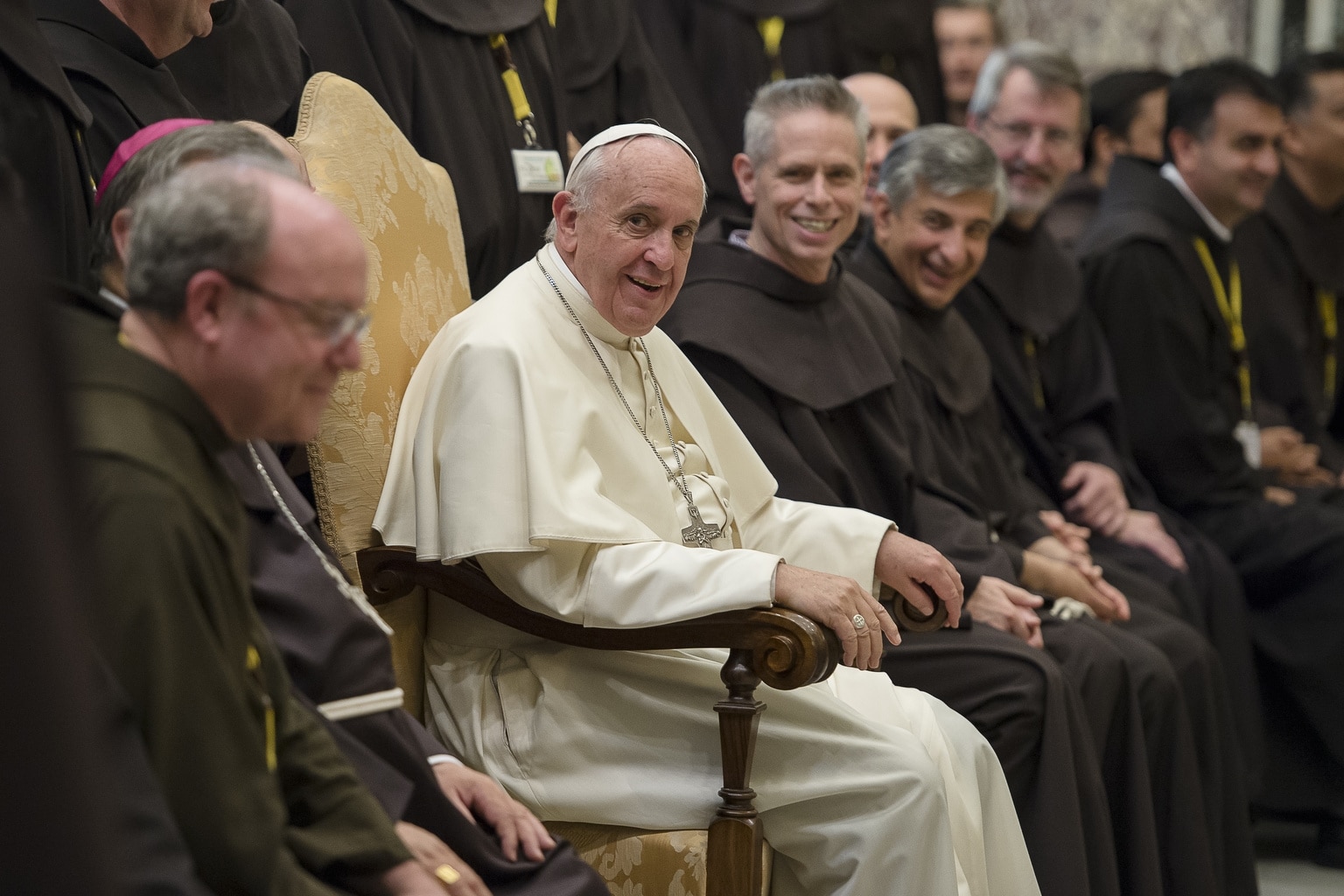That Pope Francis promulgated a year in which the Church focuses on mercy immediately following a year dedicated to consecrated religious life should have come as no surprise given the intersection of these two themes in nearly every address he made to women and men who profess to live the Gospel.
These two themes appeared together frequently in the Holy Father’s remarks and homilies during his recent pastoral visit to the United States, and they remain a touchstone of his regular catechetical teaching. Even in his second homily delivered after his election as pope, he highlighted the importance of mercy, saying: “The message of Jesus is mercy. For me, and I say this with humility, it is the Lord’s strongest message.”
The intersection of the themes of religious life and mercy should be even clearer for those of us who commit to living the Franciscan charism in the modern world, for mercy was a theme close to Francis of Assisi’s heart. And while it is important to remember the many ways that we are called to be merciful in our thoughts and in our words, we should not lose sight of the ways we are called to act with mercy in concrete and physical ways, too.
This is where the list commonly referred to as the corporal works of mercy could prove helpful for Franciscan-hearted women and men. Largely drawn from the famous final judgment scene in Matthew 25:34–40, where Jesus explains to his disciples that what is required to enter the kingdom of heaven is caring for the least of your brothers and sisters, the corporal works of mercy include feeding the hungry, giving drink to the thirsty, clothing the naked, sheltering the homeless, visiting the sick, visiting the imprisoned, and burying the dead. Traditionally, the last of the corporal works of mercy is attributed to the book of Tobit, in which the book’s namesake is exiled for his merciful works, including burying dead criminals.
All seven of these concrete actions fulfill the obligation we hear about in the Letter of James to be “doers of the word, and not merely hearers” (1:22). But too often, even women and men in religious life become less inclined to be doers and more comfortable being hearers only.
The history of the founding of many active communities of women religious, including the Franciscans, shows that their commitment to education, healthcare, and direct-service ministries from the beginning has shielded some of them from the lure of complacency and a withdrawal from the needs of their neighbors.
However, such has not always been the case for many Franciscan friars as their respective branches have, with some exceptions, embraced a more clerical lifestyle focused on celebrating the sacraments and offering pastoral care in parishes. Francis of Assisi’s emphasis on itinerancy in the spirit of the Gospel became secondary to the perceived parochial needs of a given community. Though this is in itself not a bad thing, many Franciscan houses became less inclined to engage in the corporal works of mercy, while becoming more inclined to focus on the spiritual needs of the people in an exclusive way.
This is what Pope Francis is getting at when, in his 2013 apostolic exhortation The Joy of the Gospel, he wrote that we should model our lives of discipleship after “Christ, who became poor, and was always close to the poor and the outcast, [and who] is the basis of our concern for the integral development of society’s most neglected members” (186). To those, like many of us Franciscans otherwise occupied with spiritual, academic, or other pursuits, Pope Francis calls us to return to concrete actions and move closer to our sisters and brothers.
No one must say that they cannot be close to the poor because their own lifestyle demands more attention to other areas. This is an excuse commonly heard in academic, business or professional, and even ecclesial circles. While it is quite true that the essential vocation and mission of the lay faithful is to strive that earthly realities and all human activity may be transformed by the Gospel, none of us can think we are exempt from concern for the poor and for social justice.… I trust in the openness and readiness of all Christians, and I ask you to seek, as a community, creative ways of accepting this renewed call (201).
So perhaps it is time to return to the basics of our Christian vocation to follow the Gospel. The intersection of consecrated religious life and mercy meet when we are open to the Spirit’s call to see the needs of the least among us, the ill and imprisoned, the poor and the abandoned, and do something concrete in response. May we listen to the wisdom of James in scripture calling us to live our Christian commitments by our actions, hear the exhortation of Pope Francis in his writings, and follow the example of Francis of Assisi in caring for the physical needs of our sisters and brothers in tangible, practical, corporal, ways.








